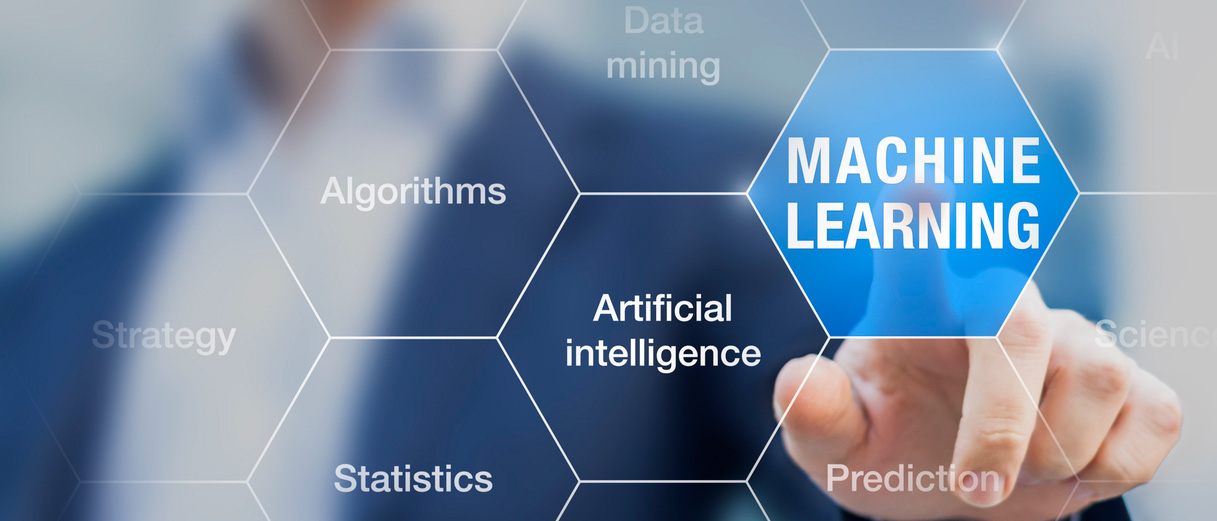Machine Learning is “…a type of Artificial Intelligence (AI) that provides computers with the ability to learn without being explicitly programmed…” (WhatIs) and “…explores the study and construction of algorithms that can learn from and make predictions on data…” (Wikipedia)
With the volume of data that is generated from an ITSM tool, Artificial Intelligence and Machine Learning provide a wealth of opportunities for an IT department to improve both the service that is delivered and the experience of the user.
Often the ITSM processes that are implemented are done so without any consideration to automation, the functionality available in the selected tools or how the data that is generated can be used, placing too much reliance on manual effort, individual experience and human intellect, which often results in a sub-optimal experience for the users.
The core precept of continual improvement needs to be adhered to for IT Service Delivery, ensuring that, not just the processes are regularly assessed and updated, but that the tooling that is implemented, and how it is used, is reviewed and new capabilities taken advantage of to improve the user experience and benefit of the business.
Leveraging the capabilities of Machine Learning, which use algorithms to understand patterns and context to decide on the best course of action, without any human interaction, will enable an IT department to transition from a reactive to a proactive deliverer of services, taking a customer-centric approach, leading to increased employee efficiency and effectiveness.
As well as enabling tools such as Virtual Assistants, Machine Learning facilitates a variety of proactive behind-the-scenes benefits for IT Service Management.
Auto-categorisation
One of the most frequent complaints, when using ITSM tools, is the way that similar tickets can be logged against a wide variety of different categories, depending on the information provided and the interpretation of the person logging the ticket. Using Machine Learning, the tool should be able to interpret the information being logged and more accurately determining the logging category. Equally, once the ticket is closed, the tool should be able to accurately determine the correct closing category for the ticket as well. This has a number of benefits; tickets will be routed to the correct resolver teams quicker; related incidents can be identified a lot quicker and the quality of information held in the ITSM tool will improve.
Predictive Analytics
The goal of using Machine Learning for predictive analytics is to have the ITSM tool improve itself, based on patterns and behaviours. This can be used to; improve the way that incidents are managed and Major Incidents identified; identify trends for Problem Management; and analyse the relative risks automatically for Change Management (not only identifying what will be impacted, but also, what the likely impact will be).
Take an Incident. By itself the Incident may be logged by a single individual and therefore classified at a low priority. As more tickets of a similar type come in the status of the Incident will rise. Eventually it is clear that there is a Major Incident and a bridge is opened to work on the resolution of the incident. The first benefit that artificial intelligence brings is the trending of similar Incidents, to indicate that they are related and therefore are an indicator of a wider issue. Secondly, any similar Incident that is logged in the future, can be identified by the Artificial Intelligence as being an indicator of a Major Incident, and requires further investigation. The ITSM system learns from both the Incidents and updates its knowledge base to determine the correct next course of action if it should recur.
This is exactly how we work when presented with information, we draw from our experience to influence our choice of actions to take. The machine learning can use its ‘experience’ to offer up the most likely solutions and resolutions, which in turn will reduce the mean time to resolution (MTTR).
Demand and Maintenance Forecasting
Artificial Intelligence can use the data in an ITSM system to predict what is needed or even what will happen. Machine Learning can not only predict the future demand for both IT services and support capabilities, but also provide an understanding of future levels of customer satisfaction based on the changes that are being planned. This can help to inform the departmental action plans, and gauge the required levels of resources; capacity, stock, and staff.
These predictive capabilities can also be used to forecast where preventative maintenance needs to be applied within the IT environment to mitigate against avoidable incidents. Machine Learning can be used to predict when devices and processes may fail, based on previous experience and manufacturer information, and allow preventative actions to be scheduled.
Knowledge Management
People aren’t great at Knowledge Management, IT departments typically have a burst of activity when an ITSM tool is first put in place, creating a lot of knowledge articles, but this
soon dies out as people find other things of interest and new articles are no longer produced and existing articles become out of date.
It is possible to use Machine Learning to help identify and fill any gaps in knowledge, not only supporting the identification and distribution of knowledge, but also the creation of it. Missing articles can be identified based on the analysis of aggregated Incident ticket data, highlighting resolutions for which there were no documented activities.
Additionally, Machine Learning can be used to fill these gaps by creating new knowledge articles automatically from ticket resolution details, using algorithms to identify the most relevant and valuable information.
These examples just start to touch on the benefits that Artificial Intelligence and Machine Learning, combined with the advent of ‘big data’, can bring to Service Management. In the final part of this blog article, we will look at the potential benefits of Artificial Intelligence, and what the future may hold.
If you would like to find out how iCore can help you with your IT service management requirements then please contact us on 0207 868 2405 or email info@icore-ltd.com

